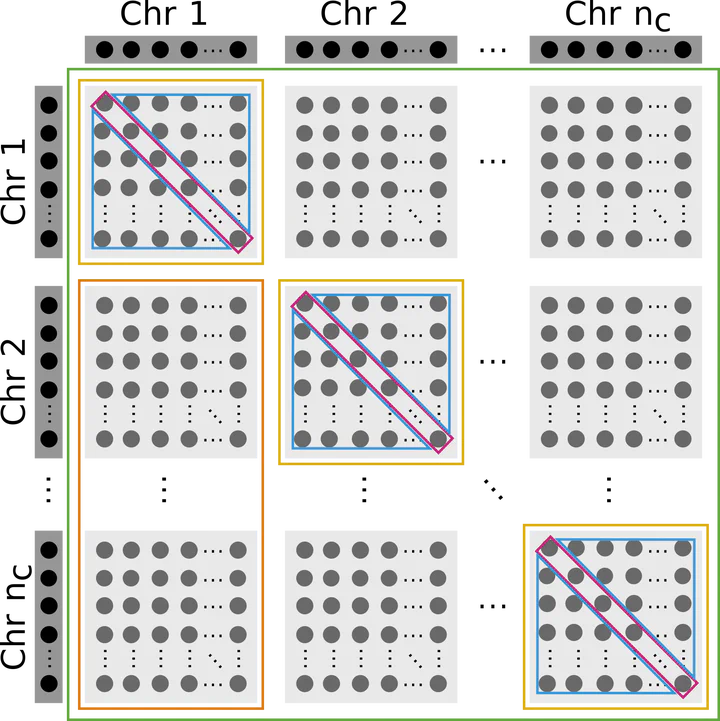Temporal and genomic analysis of additive genetic variance in breeding programmes
 Image credit: Leticia A. P. Lara
Image credit: Leticia A. P. LaraGenetic variance is a central parameter in quantitative genetics and breeding. Assessing changes in genetic variance over time as well as the genome is therefore of high interest. Here, we extend a previously proposed framework for temporal analysis of genetic variance using the pedigree-based model, to a new framework for temporal and genomic analysis of genetic variance using marker-based models. To this end, we describe the theory of partitioning genetic variance into genic variance and within-chromosome and between-chromosome linkage-disequilibrium, and how to estimate these variance components from a marker-based model fitted to observed phenotype and marker data. The new framework involves three steps (i) fitting a marker-based model to data, (ii) sampling realisations of marker effects from the fitted model and for each sample calculating realisations of genetic values and (iii) calculating the variance of sampled genetic values by time and genome partitions. Analysing time partitions indicates breeding programme sustainability, while analysing genome partitions indicates contributions from chromosomes and chromosome pairs and linkage-disequilibrium. We demonstrate the framework with a simulated breeding programme involving a complex trait. Results show good concordance between simulated and estimated variances, provided that the fitted model is capturing genetic complexity of a trait. We observe a reduction of genetic variance due to selection and drift changing allele frequencies, and due to selection inducing negative linkage-disequilibrium.